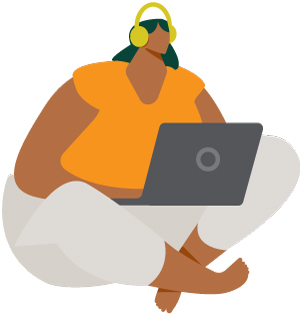The UT Employee Assistance Program (EAP) is designed to provide free, confidential assistance to help employees and their families resolve problems that influence their personal lives or job performance. Spouses and dependent children of employees also qualify for EAP benefits.
The program is available to all benefits-eligible UT employees and their immediate families, regardless of whether you participate in the State’s Group Health Insurance Program. The state EAP provides free short-term counseling, financial counseling, and brief legal advice for regular employees scheduled to work at least 75% (30 hours per week) time. Seminars are also available throughout the state.
Access State EAP Services
The State of Tennessee EAP contact is Optum 1-855-Here4TN (1-855-437-3486) or here4TN.com.
The EAP provides anonymous, free confidential personal self-assessments of the following:
- alcohol use
- anger management
- anxiety disorder
- depression
- eating disorders
Self-tests are also available to assess the following issues:
- career motivation
- conflict management
- emotional intelligence
- goal setting
- nutrition knowledge
- self-esteem
- stress (SRR scale)
Online service is available through here4TN.com. You may enter as a registered or unregistered user. Results are given immediately after completion of the screening test. Remember, if you score as a potential problem, you may contact the EAP for personal counseling sessions.
Keeping a Gratitude Journal
In the hustle and bustle of life, we often forget to pause and appreciate the simple joys that surround us. Enter the gratitude journal – your passport to a more positive outlook. Keeping a gratitude journal involves jotting down a few things you’re thankful for each day. This uncomplicated practice has a remarkable impact on your overall well-being.

Research reveals that maintaining a gratitude journal can uplift your mood, reduce stress, and improve relationships. By focusing on the positives, you’re training your brain to perceive life through a more optimistic lens. Start by dedicating a few minutes each day to reflect on what you’re grateful for, whether it’s a supportive friend, a beautiful sunset or a small personal achievement.
Get a free gratitude journal by contacting UT System Administration’s human resources department at systemhr@tennessee.edu, or by contacting your campus/institute’s HR representative.


